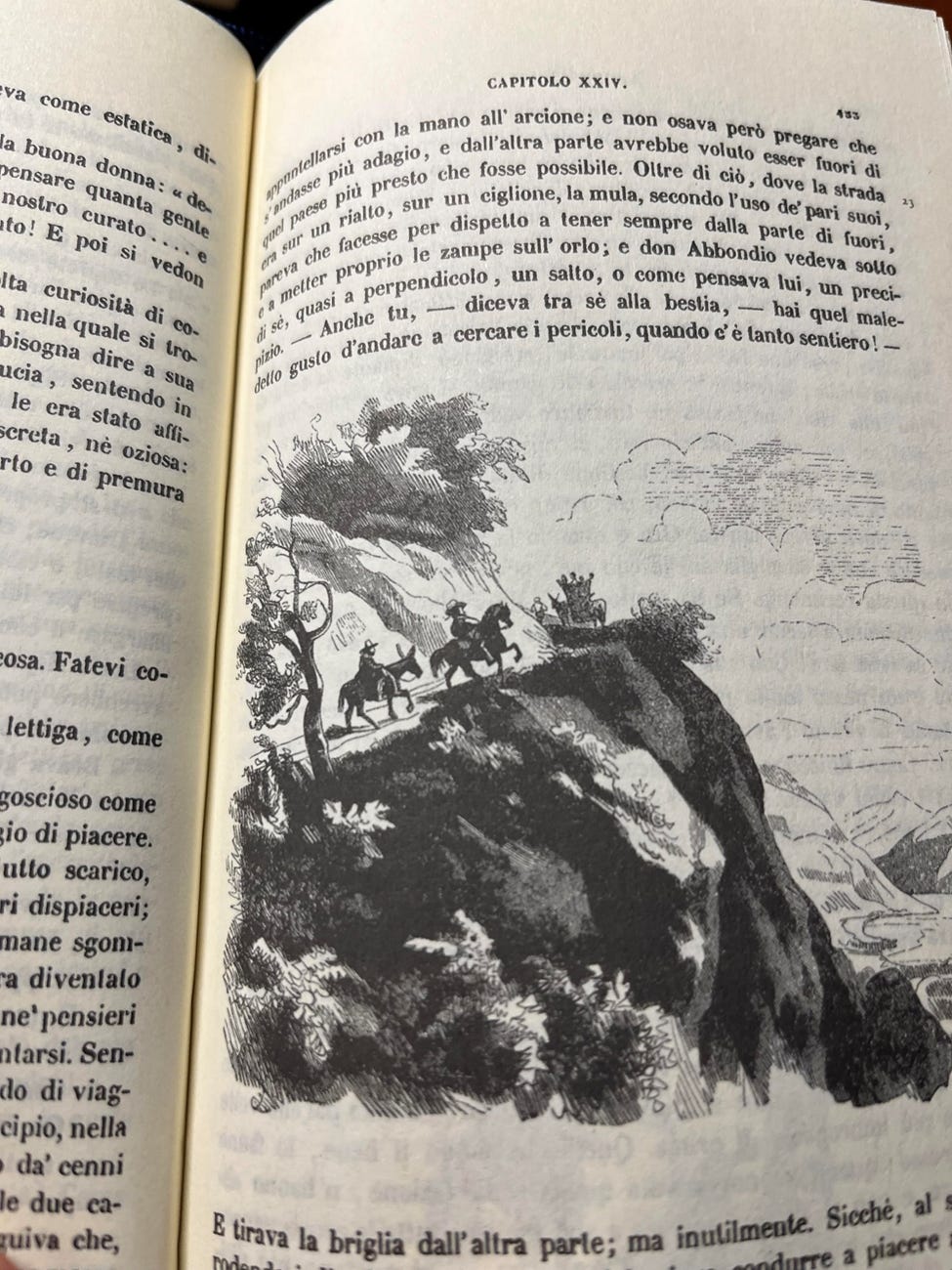APS TOGETHER
Day 30
The Betrothed by Alessandro ManzoniChapter 24 (through p.396: “as soon as you’re ready.”)
March 22, 2023 by Michael F. Moore
The Nameless One returns to his castle, a changed man. Lucia, after her initial consternation, thanks him:
“Oh, sir! May God bless you for the mercy you have shown me!”
His answer, in light of Manzoni’s earlier statement about the good residing in what we do rather than what we say, might seem paradoxical.
“And to you, one hundred times over, for the good you are doing me through your words.”
But Lucia, after all, is a character who places her trust in prayers, in words, rather than in actions, as we saw in the failed attempt at a surreptitious marriage.
The “good woman” has some sharp comments for Don Abbondio.
“I’d heard he wasn’t much of a man, and now I can see with my own two eyes that he’s as tangled as a cat in a ball of yarn.”
In Italian, “ho dovuto proprio vedere che è più impicciato che un pulcin nella stoppa,” means literally, is more mixed up than a chick in the tow. Figuratively it means to look lost and helpless. I changed the creature, the material, and the milieu (from the barnyard to the home), mindful of the repeated use of the terms “imbroglio” and “confusione,” as well as of Don Abbondio’s state of mind.
The good woman reports the Cardinal Archbishop’s advice to Lucia:
“And he told me that you should rejoice, and forgive the man that harmed you.”
Here the theme of forgiveness, which plays a large role in the last part of the book, makes its first appearance.
“For Don Abbondio, the return trip was not nearly as distressing as the way there had been, but it wasn’t exactly pleasant, either. His panic was replaced by relief, but a hundred other irritations soon began to crop up in his heart, not unlike the ground where a large tree has been uprooted: It remains bare for a period, but then fills up with weeds.”
In his long, self-pitying interior monologue, he even worries that the bravi will turn him into a martyr.

An astonishing passage, when Lucia suddenly remembers her vow:
“After the rush of thoughts preceding language, the first words to form in her mind were, ‘Woe is me, what have I done!’”
She can only overcome her regret through resolve, and through her overpowering belief that everything that has happened to her has been an act of Providence.
